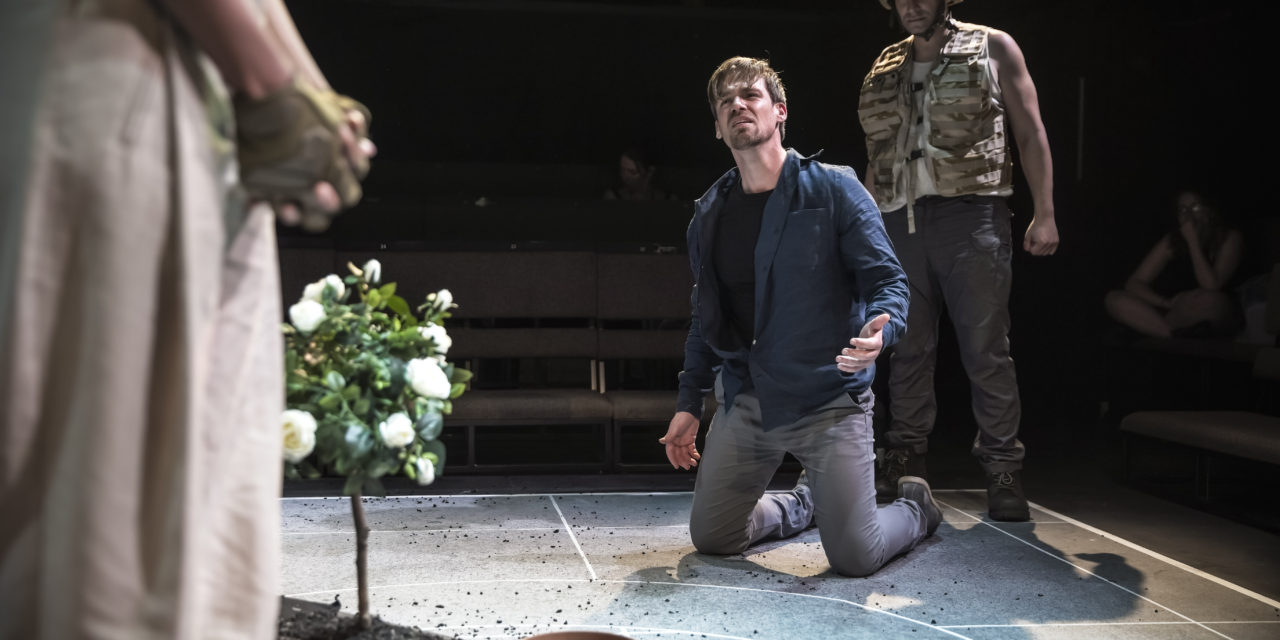
23 – 25 June
Henry VI: Days Of Rebellion is history brought to spectacular, thoroughly entertaining life by a very talented multinational cast of young actors.
At what age, ideally, should a royal prince be crowned king? Some sympathy is surely due to any heir who has to wait until his old age, but at least that gives plenty of time to gain an understanding of what the job entails. In contrast, Henry VI became King of England aged just nine months, so had no apprenticeship at all. By the time he was old enough to assert any real authority it was too late; warring factions within the kingdom had taken up irreconcilable positions, and though he was admirably pious and well-intentioned, he was hopelessly outgunned by more ruthless characters who were well-versed in the power game. Unsurprisingly, things fell apart.
That disintegration, which played out over fifty fractious years, is depicted in Shakespeare’s Henry VI trilogy. Here, director Gemma Fairlie has condensed those three plays into a single, action-packed drama lasting just two-and-a bit hours. Arnold Toynbee famously quipped that history can be seen by some as ‘just one damned thing after another’, and there is no doubt that this production depicts a great number of events occurring in rapid-fire fashion. Robbie McDonnell’s sparse, clean-cut set allows for quick changes of scene, and Chris Collier’s lighting combines very effectively with Jessica Edkins’ sound design to transport the action from royal court to bloody battlefield and back again in the blink of an eye. The violent episodes are cleverly choreographed, including Jack Cade’s rebellion of 1450, which is depicted as having been whipped up by the disgruntled Richard of York (Nathan Stark), and therefore is pointedly analogous with the recent storming of Washington’s Capitol.
Inevitably, with so much happening at such fast-pace, there is little time for quietly reflective passages that might reveal characters’ inner thoughts and feelings. It is therefore greatly to the credit of Gemma Fairlie’s adroit directorial skills and to the talent of her cast that the individual personalities of the main protagonists are so clearly delineated. Fourteen actors play over twenty different parts, frequently in gender-blind fashion, as exemplified by Justine Marler’s convincing performance of the title role. She touchingly captures Henry’s essential goodness and vulnerability. This is a Henry who never had what it takes to fulfil a royal destiny; but escape to California was not an option for medieval princes.
Other characters are far more obsessed with power, as seen, for example, in Carola Colombo’s Duke of Somerset, and Rui Maria Pêgo’s Duke of Suffolk, both delighting in their own deviousness. Equally adept at political machination is N’Dea Miles’ Queen Margaret, the real power behind Henry’s increasingly threatened throne.
This is a world where the only way to avoid betrayal is to never have trusted anyone in the first place. Enter, in the final scene, Richard, Duke of Gloucester (Patrick Shearer), the “crookback” whose vaulting ambition is entirely unencumbered by any moral scruples.
Henry VI: Days Of Rebellion is a modern-dress production, and there are nods in the direction of modern big business. The seat of power is depicted as the ‘English Rose Corporation’, an idea reinforced by the use of cold, impersonal office furniture and sliding glass doors, and there are brief newscasts seen on TV monitors. This framing device is not exploited to any great degree, and adds little to any notions of contemporary relevance. However, that is a very minor cavil, for this is a dynamic and thoroughly enjoyable show; the BOVTS’s graduating MFA Professional Acting students should be very proud of their achievement.
Mike Whitton 25 June 2022
Photo credit: Craig Fuller


